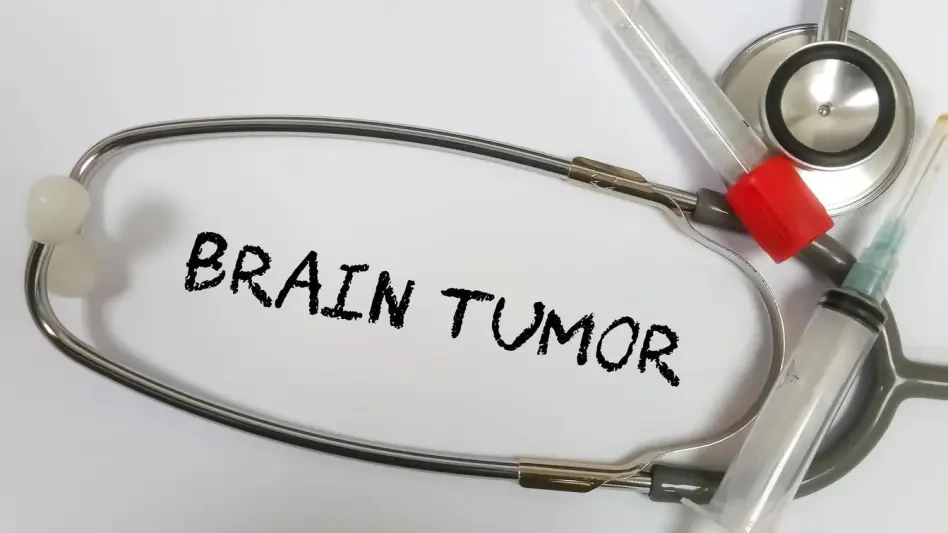In a groundbreaking development for pediatric oncology, the U.S. Food and Drug Administration (FDA) has approved a clinical trial for Reyobiq (Rhenium Re186 Obisbemeda), a promising radiation therapy aimed at treating aggressive brain tumors in children. This trial has generated significant interest due to its potential to address the unmet need for effective treatments for high-grade pediatric gliomas and ependymomas. Historically, these brain tumors have posed severe challenges, offering little hope for improvement despite the traditional reliance on surgery and external beam radiation. Reyobiq represents a novel approach by employing the radioactive isotope rhenium-186, which specifically targets tumor cells. Unlike conventional treatments, this method holds the promise of minimizing damage to healthy brain tissue.
Expanding Treatment Options for Pediatric Gliomas
The clinical trial for Reyobiq, referred to as ReSPECT-PBC, is made possible through a $3 million grant from the U.S. Department of Defense and is scheduled to begin by July. This trial marks a pivotal moment in pediatric cancer research, offering a glimpse into the future of treatment possibilities for high-grade gliomas in young patients. Surgery and external beam radiation, the longstanding treatments for these aggressive tumors, have not yielded significant advances over the years. As a result, there is a pressing demand for new therapeutic interventions that can improve outcomes for affected children. Reyobiq takes center stage in this endeavor with its unique ability to directly target tumor cells while reducing collateral damage to healthy tissue, potentially transforming the landscape of pediatric oncology.
Another central feature of Reyobiq’s treatment strategy is its innovative use of convection-enhanced delivery (CED). This method bypasses the blood-brain barrier—a critical defense mechanism that restricts substances from entering the brain from the bloodstream. Through CED, Reyobiq is capable of delivering therapy directly to the tumor site, facilitating a more focused attack on cancerous cells. This technique not only represents a shift in treatment paradigms but also helps to mitigate unintended side effects, paving the way for more precise and effective cancer care. By employing CED, researchers hope to achieve a higher degree of precision in targeting tumors, increasing the potential for successful outcomes.
Insights from Adult Trials and Projected Pediatric Impact
The foundation for the pediatric trial of Reyobiq was laid by its success in adult studies, specifically the ReSPECT-GBM trial. This earlier study involving adults demonstrated that the treatment was generally well tolerated, with most adverse events being mild or moderate in nature. Additionally, it was observed that the radiation remained localized within the tumor, maintaining its presence for at least eight days following infusion. This important finding supports the therapy’s targeted approach and its capacity to deliver radiation in a controlled manner. The retention and localized effect of rhenium-186 underscore the promise of Reyobiq in augmenting treatment options for pediatric patients, bolstering optimism for improved outcomes.
The pediatric trial design capitalizes on the lessons learned from adult studies, ensuring a strategic and methodical approach to testing the therapy’s efficacy and safety. Planned over two phases with approximately 56 participants, the trial will begin with a dose-escalation study to establish optimal dosing levels, followed by an assessment of efficacy in Phase 2. This structured approach reflects a commitment to balancing innovative therapeutic exploration with rigorous scientific validation. By prioritizing safety in the early stages and efficacy in the latter, the study’s design aims to deliver a comprehensive evaluation of Reyobiq’s potential to revolutionize the treatment landscape for pediatric brain tumors.
A Future of Hope in Pediatric Oncology
Supported by a $3 million grant from the U.S. Department of Defense, the ReSPECT-PBC clinical trial for Reyobiq is poised to begin by July, representing a significant advancement in pediatric cancer research. This trial offers new hope for treating high-grade gliomas in young patients, as traditional methods like surgery and external beam radiation have shown limited progress over time. Consequently, there’s an urgent need for innovative treatments to improve outcomes for children with these aggressive tumors. Reyobiq plays a crucial role with its ability to precisely target tumor cells while minimizing harm to healthy tissue, potentially revolutionizing pediatric oncology.
A standout feature of Reyobiq’s treatment is the use of convection-enhanced delivery (CED), which bypasses the blood-brain barrier—a natural mechanism that blocks substances from entering the brain. This approach delivers treatment directly to tumors, allowing a more targeted attack and reducing side effects. By employing CED, researchers aim for improved precision in tumor targeting, increasing the chances of successful treatment outcomes.









